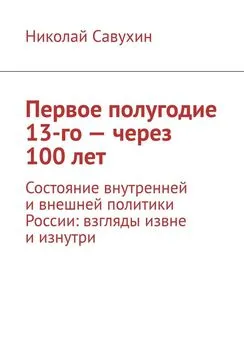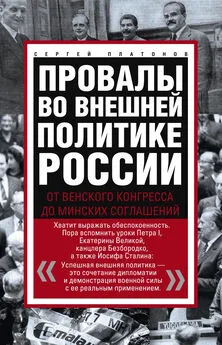Александр Бух - Япония. Национальная идентичность и внешняя политика. Россия как Другое Японии
- Название:Япония. Национальная идентичность и внешняя политика. Россия как Другое Японии
- Автор:
- Жанр:
- Издательство:Array Литагент «НЛО»
- Год:2014
- Город:Москва
- ISBN:978-5-4448-0333-2
- Рейтинг:
- Избранное:Добавить в избранное
-
Отзывы:
-
Ваша оценка:
Александр Бух - Япония. Национальная идентичность и внешняя политика. Россия как Другое Японии краткое содержание
Исследование не ограничивается частными вопросами русско-японских отношений, поскольку тематизация отношений между национальной идентичностью и внешней политикой требует критического анализа основ современной теории международных отношений. Таким образом, книга адресована не только специалистам по вопросам русско-японских отношений, но и широкому кругу ученых в области международных отношений.
Александр Бух – доцент Высшей школы гуманитарных и социальных наук при университете Цукуба (Япония). Выпускник Токийского университета (магистерская степень) и Лондонской школы экономики (докторская степень в области международных отношений).
Япония. Национальная идентичность и внешняя политика. Россия как Другое Японии - читать онлайн бесплатно полную версию (весь текст целиком)
Интервал:
Закладка:
Alderson, K. (2001) Making Sense of State Socialization. Review of International Studies, 27: 415–433.
Anderson, B. (1998) The Spectre of Comparisons: Nationalism, Southeast Asia and the World, London, Verso.
Anno, T. (2000) Collective Identity as an «Emotional Portfolio». IN DOHERTY, E. M. ą SIL, R. (Eds.) Beyond Boundaries? New York, State University of New York.
Aoyama, T. (1999) Japanese Literary Responses to the Russo-Japanese War. IN WELLS, D. ą WILSON, S. (Eds.) The Russo-Japanese War in Cultural Perspective, 1904–05. New York, St. Martin’s Press Inc.
Arutyunov, S.A. (1965) Ainy (Ainu), Moscow, Nauka. In Russian.
Axelbank, A. (1972) Black Star over Japan: Rising Forces of Militarism, London, Allen and Unwin.
Aydin, C. (2008) Japan’s Pan-Asianism and the Legitimacy of Imperial World Order, 1931–1945. Japan Focus. http://japanfocus.org/_Cemil_Aydin-Japan___s_Pan_Asianism_and_the_Legitimacy_of_Imperial_World_Order__1931___1945?accessedon 20 May 2008.
Befu, H. (2001) Hegemony of Homogeneity, Melbourne, Brown Prior Anderson.
Bellah, R. (2003) Imagining Japan, London, University of California Press.
Bellamy, A.J. (2002) Pragmatic Solidarism and the Dilemmas of Humanitarian Intervention. Millennium: Journal of International Studies, 31, 473–497.
Ben-Ami, D. (1997) Is Japan Different? IN HAMMOND, P. (Ed.) Cultural Difference, Media Memories. London, Cassell.
Benedict, R. (1946) The Chrysanthemum and the Sword: Patterns of Japanese Culture, Boston, Houghton Mifflin Co.
Berger, P.L. ą Luckmann, T. ([1966] 1980) The Social Construction of Reality, New York, Irvington.
Berger, T. (1996) Norms, Identity and National Security in Germany and Japan. IN KATZENSTEIN, P.J. (Ed.) The Culture of National Security. New York, Columbia University Press.
– (1998) Cultures of Antimilitarism, Baltimore, The John Hopkins Press.
– (1999) Alliance Politics and Japan’s Postwar Culture of Antimilitarism. IN GREEN, M. and CRONIN P.
– (2003) Power and Purpose in Pacific East Asia: A Constructivist Interpretation. IN IKENBERRY, J. ą MASTANDUNO, M. (Eds) International Relations Theory and the Asia-Pacific. New York, Columbia University Press.
Berger, T. (Ed.) The US-Japan Alliance: Past, Present and Future. New York, Council on Foreign Relations Press. Berlin, I. (1999) The Hedgehog and the Fox, London, Phoenix.
Berton, P. (1985) Prospects for Soviet-Japanese Relations-Legality, Morality, and Reality: An American Perspective. Japan-Soviet Relations in Changing Global Context. Tokyo, Hoppōryōdo mondai taisaku kyōkai.
– (1992) The Japanese-Russian Territorial Dilemma: Historical Background, Disputes, Issues, Questions, Solution Scenarios. Working paper. Strengthening Democratic Institutions Project. John F. Kennedy School of Government.
– (1992a) The Impact of the 1989 Revolutions on Soviet-Japanese Relations. IN KIM, Y. ą SIGUR, G. (Eds) Asia and the Decline of Communism. New Brunswick, Transaction Publishers.
Bird, I. (1880) Unbeaten Tracks in Japan, London, John Murray.
Borton, H., Cohen, J., Jorden, W., Keene, D., Langer, P. ą Wilbur, M. (1957) Japan between East and West, Westport, Greenwood Press.
Bozman, A. (1984) The International Order in a Multicultural World. IN BULL, H. ą WATSON, A. (Eds.) The Expansion of International Society. Oxford, Clarendon Press.
Braddick, C. (2000) «The Waiting Game»-Japan-Russia Relations. IN JAIN, P. ą INOGUCHI, T. (Ed.) Japanese Foreign Policy Today. New York, Palgrave.
Brennan, T. (1990) The National Longing for Form. IN BHABHA, H. (Ed.) Nation and Narration. London, Routledge.
Bukh, A. (2006) Russia in the Construction of Japan’s Identity: Implications for International Relations. PhD thesis in International Relations submitted to the London School of Economics (LSE) in August 2006 (degree awarded in December 2006).
– (2007) Constructivism and Japan’s Identity and Foreign Policy: A Critique. Asia Cultural Studies, 33, 152–172.
Bury, A. (2004) The Current Status of Issues Concerning and Prospects for Investment Cooperation Between Japan and Eastern Russia. Erina Report, 59, 10–13.
Buzan, B. (1988) Japan Future: Old History versus New Roles. International Affairs-RIIA, 64.
– (2006) An English School Perspective on ‘What Kind of World Order?’ Cooperation and Conflict, 41, 364–369.
Campbell, D. (1992) Writing Security: United States foreign policy and the politics of identity, Manchester, Manchester University Press.
– (1996) Violent Performances: Identity, Sovereignty, Responsibility. IN LAPID, Y. ą
Kratochwil, F. (Eds) The Return of Culture and Identity in IR. London, Lynne Reinner Publishers.
Campbell, J. C. (1993) Japan and the United States: Games that Work. IN CURTIS, G. (Ed.) Japan’s Foreign Policy After the Cold War: Coping with Change. New York, M.E. Sharpe.
Clammer, J. (2001) Japan and its Others, Melbourne, Trans Pacific Press.
Clark, G. (2005) Japan-Russia Dispute Over Northern Territories Highlights Flawed Diplomacy. Japan Focus.
http://japanfocus.org/_Gregory_Clark-_Japan_Russia_Dispute_ Over_Northern_Territories_Highlights_Flawed_Diplomacy Accessed on 12 September 2007
Clunan, A. (2000) Constructing Concepts of Identity. IN DOHERTY, E. ą SIL, R. (Eds) Beyond Boundaries? New York, State University of New York Press.
Cole, A., Totten, G. ą Uyehara, C. (Eds.) (1966) Socialist Parties in Postwar Japan, London, Yale University Press.
Curtin, S. (2005) Sea of Confrontation: Japan-China Territorial and Gas Dispute. Japan Focus. http://japanfocus.org/_J_Sean_Curtin-_Sea_of_ Confrontation__Japan_China_Territorial_and_Gas_Dispute_ Intensifies accessed on 22 June 2008.
Dale, P. (1986) The Myth of Japanese Uniqueness, Sydney, Croom Helm and Nissan Institute for Japanese Studies.
Defense Agency (1991) Defense of Japan . Tokyo, Defense Agency.
– (2000) Defense of Japan . Tokyo, Defense Agency.
– (2003) Defense of Japan . Tokyo, Defense Agency.
Deudney, D. ą Ikenberry, J. (1993/94) The Logic of the West. World Policy Journal, 10, 17–27.
Devetak, R. (1996) Critical Theory. IN BURCHILL, S. ą LINKLATER, S. (Eds) Theories of International Relations. London, Macmillan Press.
Doak, K. (2007) A History of Nationalism in Modern Japan, Boston, Brill.
Dobson, H. (2004) Japan and the G7/8: 1975–2002 London, Routledge Curzon.
Doty, R. (2000) Desire all the way down. Review of International Studies, 26, 137–139.
Dower, J. (1986) War without Mercy: Race and Power in the Pacific War, New York, Pantheon.
– (1993) Japan in War and Peace, New York, The New Press.
– (2000) «Culture», Theory and Practice in U.S.-Japan Relations. Diplomatic History, 24, 517–528.
Drifte, R. (2003) Japan’s Security Relations with China since 1989, London, Routledge.
Duus, P. ą Okimoto, D. (1979) Fascism and the History of Pre-War Japan: The Failure of a Concept. The Journal of Asian Studies, 39, 65–76.
Egdar, A. ą Haglund, D. (1993) Japanese Defense Industrialization. Japan’s Military Renaissance? London, Macmillan Press.
Epp, R. (1998) The English School on the Frontiers of International Relations. Review of International Studies, 24, 47–63.
Fabian, J. (1983) Time and the Other, New York, Columbia University Press.
Falkenheim, P. (1977–1978) Some Determining Factors in Soviet-Japanese Relations. Pacific Affairs, 50(4), 604–624.
Ferguson, J. (2004) The Diaoyutai-Senkaku Islands Dispute Reawakened China Brief (The Jamestown Foundation).
http://www.jamestown.org/publications_details.php?volume_ id=395ąissue_id=2905ąarticle_id=23509 Accessed on 3 May 2008.
Ferguson, J. (2008) Japanese-Russian Relations, 1907–2007, New York, Routledge.
Fitzhugh, W. ą Dubreuil, S. (Eds) (1999) Ainu: Spirit of a Northern People, Los Angeles, Perpetua Press.
Foglesong, D. ą Hahn, G. M. (2005) Ten Myths About Russia: Understanding and Dealing with Russia’s Complexity and Ambiguity. Argentine, Centro Argentino de Estudios Internacionales.
Funabashi, Y. (1994) Japan’s International Agenda, New York, New York University Press.
Gallicchio, M. (2000) The African American Encounter with Japan and China:
Black Internationalism in Asia, 1895–1945, London, University of North Carolina Press.
Garthoff, R. (1995) A Diplomatic History of the Dispute. IN GOODBY, J., IVANOV, V. I. ą SHIMOTOMAI, N. (Eds) «Northern Territories» and Beyond. London, Praeger.
Gayle, C. (2003) Marxist History and Postwar Japanese Nationalism, London, Routledge Curzon.
Glaubitz, J. (1995) Between Tokyo and Moscow: The History of an Uneasy Relationship 1972 to the 1990s, London, Hurst ą Company.
Goertz, G. ą Diehl P. (1992) Toward a Theory of International Norms: Some Conceptual and Measurement Issues. The Journal of Conflict Resolution, 36, 634–664.
Goldstein, J. ą Keohane, R. (Eds) (1993) Ideas and Foreign Policy: Beliefs, Institutions and Political Change, Ithaca, Cornell University Press.
Gong, G. (1980) The Standard of «Civilization» and the Entry of Non-European Countries into International Society: The Cases of China, Japan and Siam. Faculty of Social Studies. Oxford, Wadham College, Oxford.
– (1984) The Standard of Civilization in International Society, Oxford, Clarendon Press.
Goodby, J., Ivanov, V. ą Shimotomai, N. (Eds) (1995) «Northern territories» and Beyond: Russian, Japanese, and American perspectives, Westport, Praeger.
Gow, I. (1993) Civilian Control of the Military in Postwar Japan. IN MATTHEWS, R. ą MATSUMURA, K. (Eds) Japan’s Military Renaissance? London, Macmillan Press.
Guillaume, X. (2002) Foreign Policy and the Politics of Alterity: A Dialogical Understanding of International Relations. Millennium: Journal of International Studies, 31, 1–26.
Hadfield, A. (1994) Literature, Politics and National Identity, Cambridge, Cambridge University Press.
Halliday, F. (1992) International Society as Homogeneity: Burke, Marx, Fukuyama. Millennium, 21, 435–461.
Halliday, J. ą MaCCormack, G. (1973) Japanese Imperialism Today: «Co-prosperity in Greater East Asia», Harmondsworth, Penguin.
Hammond, P. (Ed.) (1997) Cultural Difference, Media, Memories: Anglo-American Images of Japan, London, Cassell.
Han, J. (2007) Envisioning a Liberal Empire in East Asia: Yoshino Sakuzō in Taisho Japan. Journal of Japanese Studies, 33, 357–382.
Hara, K. (1998) Japanese-Soviet/Russian Relations Since 1945: Difficult peace, New York, Routledge.
– (2001) 50 years from San-Francisco: Re-Examining the Peace Treaty and Japan’s Territorial Problems. Pacific Affairs, 74, 361–382.
Harootunian, H. D. (1993) America’s Japan/Japan’s Japan. IN HAROOTUNIAN, H. D. ą MIYOSHI, M. (Eds) Japan in the World. London, Duke University Press.
Harootunian, H. ą Miyoshi, M. (Eds) (1993) Japan in the World. London, Duke University Press.
Harootunian, H. ą Najita, T. (1988) Japan’s revolt against the West: political and cultural criticism in the twentieth century. IN DUUS, P. (Ed.) The Cambridge History of Japan. New York, Cambridge University Press.
Читать дальшеИнтервал:
Закладка:
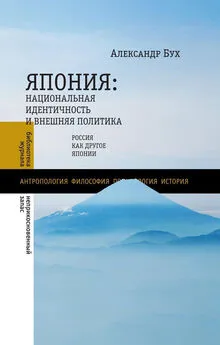




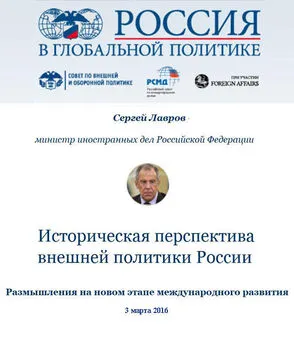
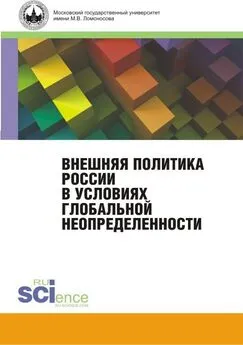
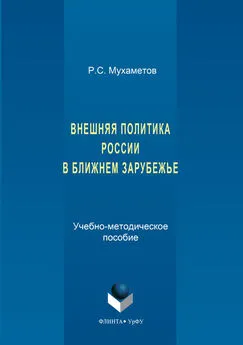
![Игорь Иванов - Внешняя политика России в эпоху глобализации [Статьи и выступления]](/books/1090951/igor-ivanov-vneshnyaya-politika-rossii-v-epohu-globa.webp)
